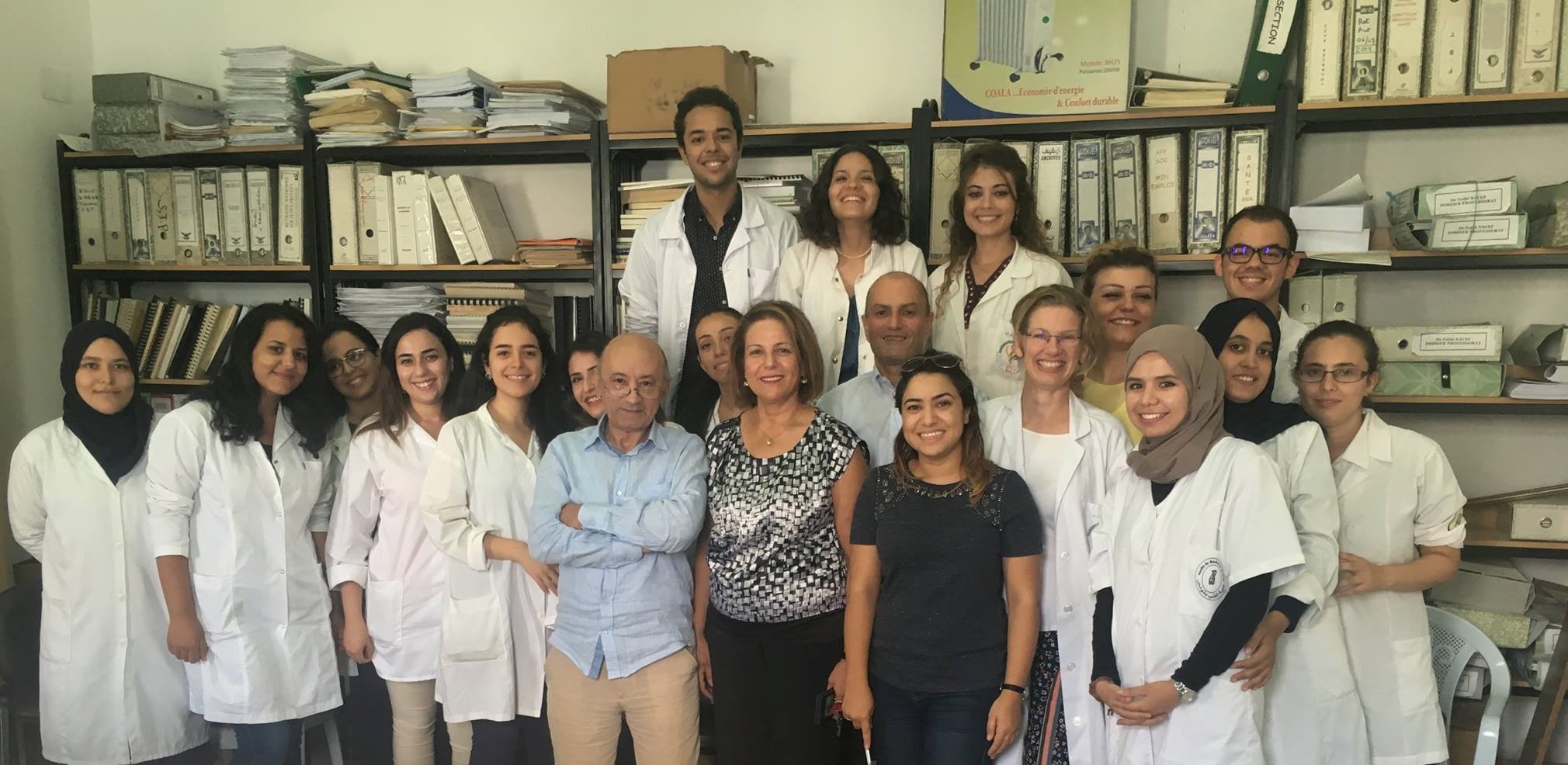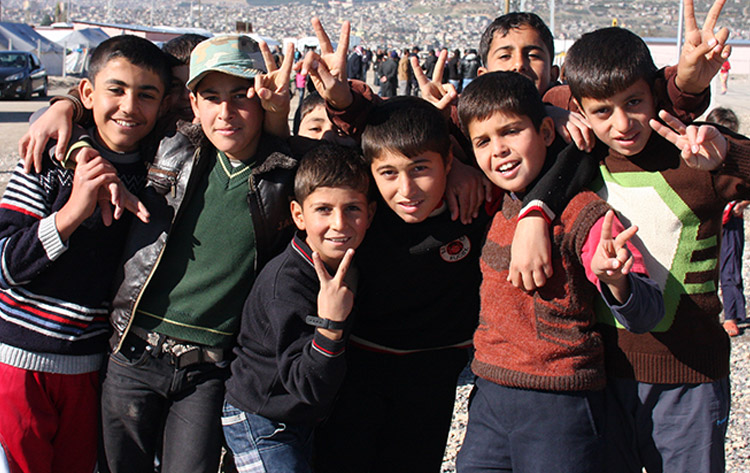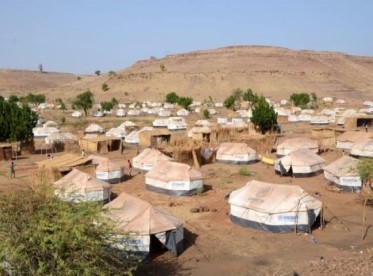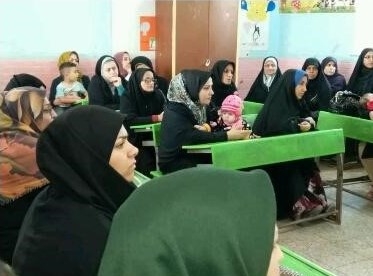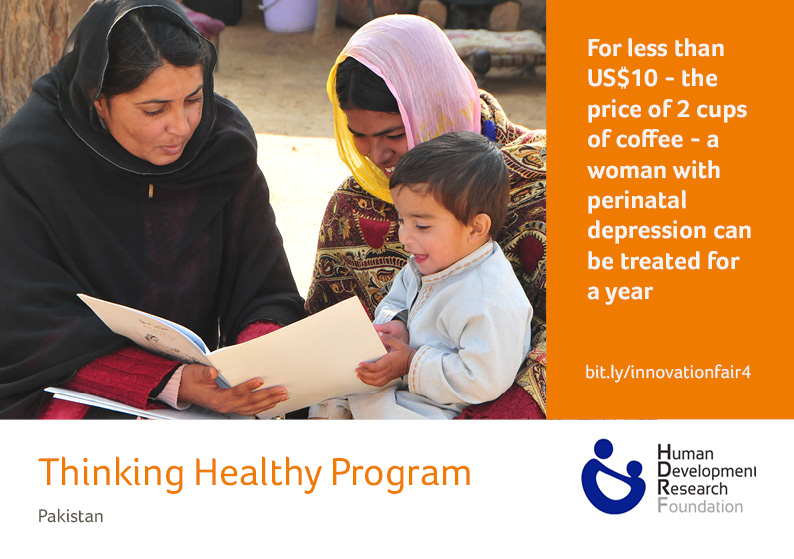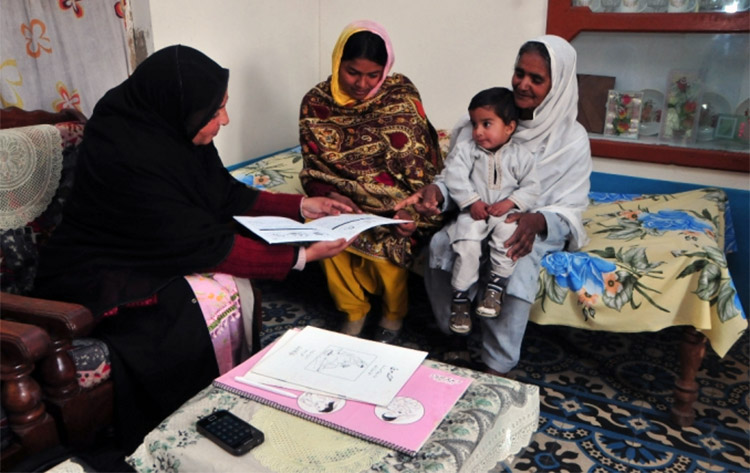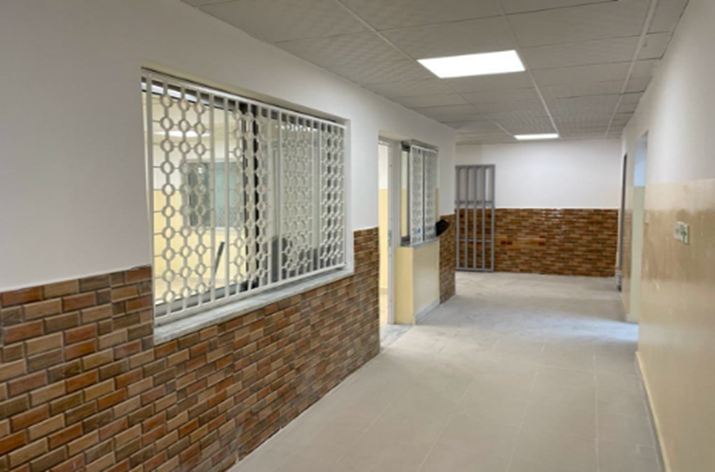Reducing the stigma of mental health disorders in Tunisia with a focus on future doctors
This case study highlights stigma related to mental health disorders which exists in the health care system and among health care providers in Tunisia. For people living with mental health disorders, it is a major barrier to seeking help, accessing quality care and treatment, and recovery. It focuses on implementing innovative solutions for health care providers like the Responding to Experienced and Anticipated Discrimination (READ) anti-stigma training for medical students, to improve the ability of future doctors, specifically fifth-year medical students at Tunis Medical School to overcome the stigma of mental health disorders and improve quality of care and life for people living with mental health disorders.
President’s initiative to promote and improve mental health in schools in Pakistan
This country case study highlights the President’s initiative, launched by the Government of Pakistan, to promote and improve mental health in schools, with an emphasis on technology to improve access to mental health. This 5-year initiative focuses on training teachers in skills and strategies to promote mental health in their schools and recognize and manage mental health problems early on.
Providing mental health support in humanitarian emergencies: an opportunity to integrate care in a sustainable way
This country case study highlights the approach taken in Sudan, in collaboration with WHO and UNHCR, to strengthen national mental health systems through responses provided in humanitarian settings. The approach – which has led to increased capacity for mental health services within the broader health system – includes three core elements: the engagement of community leaders; the integration of support within the broader health system; and ensuring the quality of services provided through supportive supervision.
The National Integrated Parenting Skills Training Program
This country case study is part of a series developed in collaboration with the Mental Health Innovation Network with the aim of highlighting mental health innovations within the Eastern Mediterranean Region. This featured program from Iran is for parents. It is based on the Parent Management Training (PMT) principles, and aims to improve child-parent interaction as a prevention strategy for child abuse, maltreatment and neglect, through equipping parents with the skills and confidence they need to be self-sufficient and manage family issues independently.
School Health Implementation Network in the Eastern Mediterranean Region (SHINE)

This country case study is part of a series developed in collaboration with the Mental Health Innovation Network with the aim of highlighting mental health innovations within the Eastern Mediterranean Region. This project in Pakistan aims to evaluate the enhanced WHO’s School Mental Health Program aiming to reduce socio-emotional difficulties within school-going children through an online training platform and chat-bot for school teachers in rural Rawalpindi.
First 24/7 mental health helpline in Pakistan

This country case study is part of a series developed in collaboration with the Mental Health Innovation Network with the aim of highlighting mental health innovations within the Eastern Mediterranean Region. This project aims to address the gap in access to mental health care through providing 24/7 accessible mental health helpline, that operates free of cost for people with mental health conditions who wish to anonymously (or otherwise) seek help from qualified psychiatrists and psychologists.
Mental health system reform in Afghanistan
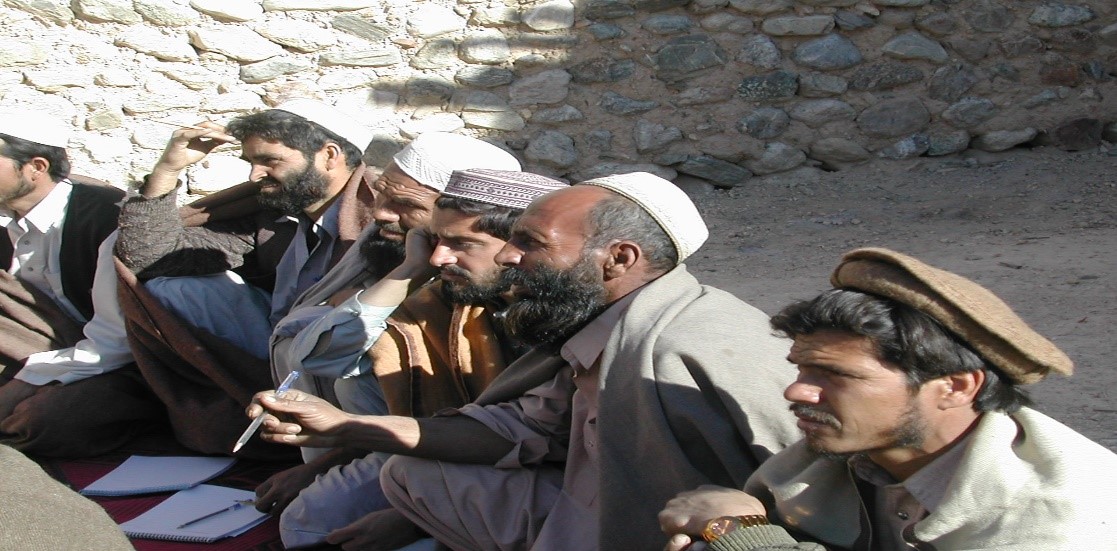
This country case study is part of a series developed in collaboration with the Mental Health Innovation Network with the aim of highlighting mental health innovations within the Eastern Mediterranean Region. This project aims to rebuild the Afghan healthcare system through integrating mental health into basic health services. It focuses on provision of non-pharmacological psychosocial interventions linked to community programs supported by secondary level psychiatric care.
Family Well-being Centers: Delivering Community-based Mental Health Support in Syria
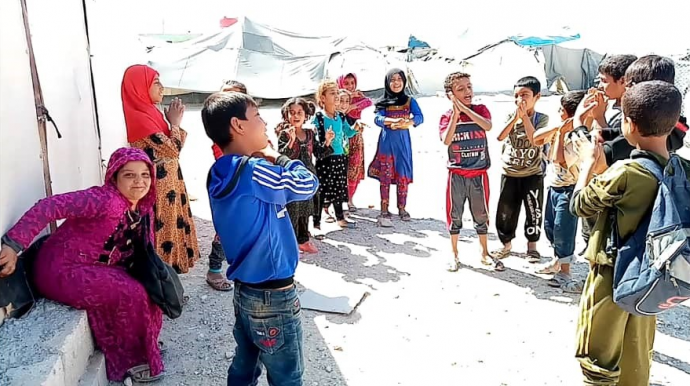
This country case study is part of a series developed in collaboration with the Mental Health Innovation Network with the aim of highlighting mental health innovations within the Eastern Mediterranean Region. This featured program from Syria aims to integrate Mental Health and Psychosocial Support (MHPSS) services at the community level in order to enhance service access for populations at risk of severe mental distress and to reduce the linked dual-stigma of mental health conditions and gender-based violence.
Iran National Suicide Prevention Program
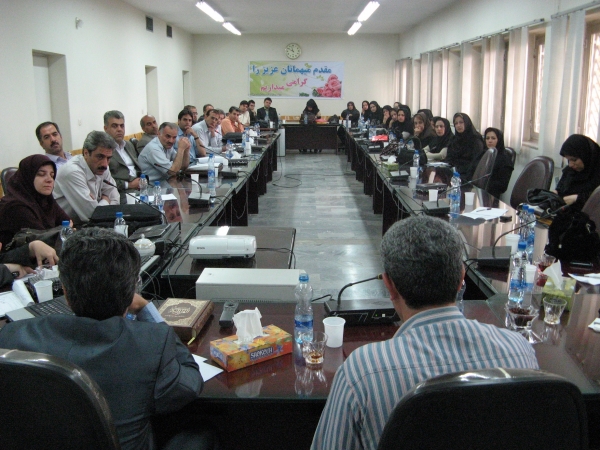
This country case study is part of a series developed in collaboration with the Mental Health Innovation Network with the aim of highlighting mental health innovations within the Eastern Mediterranean Region. This featured holistic and integrated program from Iran aims to reduce the rates of suicide attempts and suicide mortality within the general population through including evidence-based suicide prevention approaches within policy and practice.
Towards an Effective Integration of Mental Health in Primary Care in Kuwait
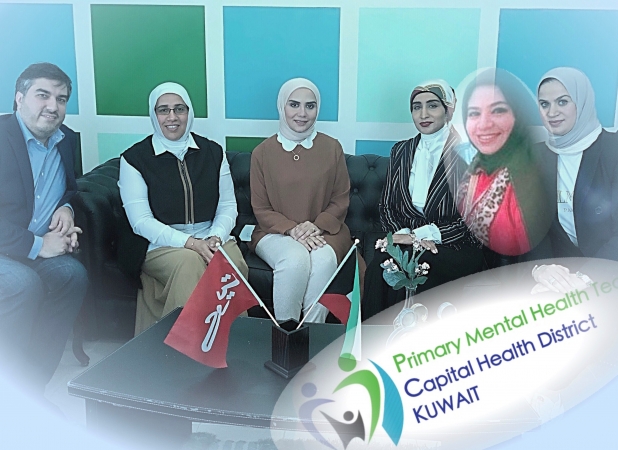
This country case study is part of a series developed in collaboration with the Mental Health Innovation Network with the aim of highlighting mental health innovations within the Eastern Mediterranean Region. This featured program from Kuwait aims to create a best practice model for integrating mental health services into primary care through an integration approach that ensures comprehensive, specialized and high-quality mental health care.
WHO mhGAP Implementation in Saudi Arabia: Integrating Mental Health in Primary Health Care
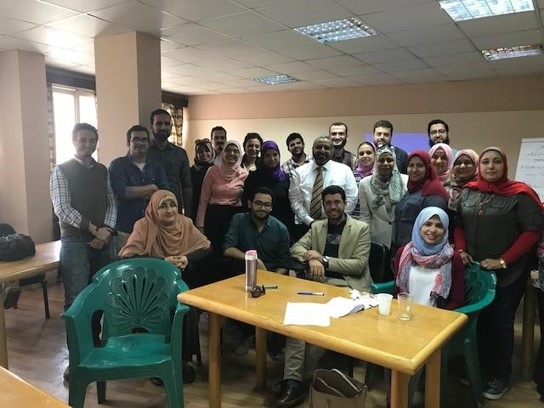
This country case study is part of a series developed in collaboration with the Mental Health Innovation Network with the aim of highlighting mental health innovations within the Eastern Mediterranean Region. This featured program from Saudi Arabia aims to provide effective primary mental health care services and training for primary health care workers to diagnose and deal with common mental health conditions.
Suicide Prevention in Tunisia
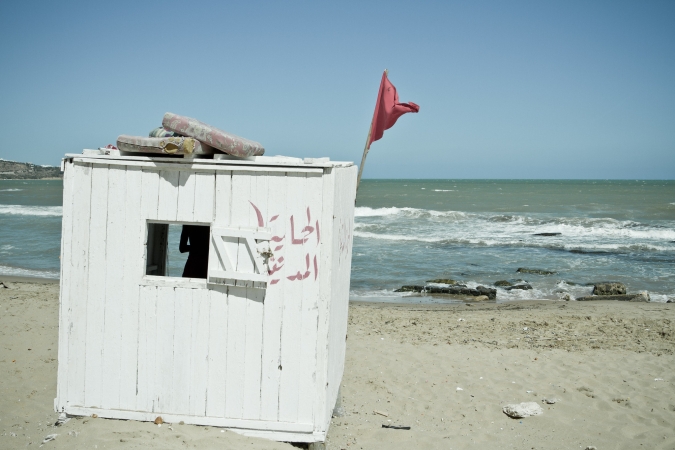
This country case study is part of a series developed in collaboration with the Mental Health Innovation Network with the aim of highlighting mental health innovations within the Eastern Mediterranean Region. This featured program from Tunisia aims to reduce the incidence of suicide and suicidal through the formulating a better understanding of the causality of suicidal behavior within Tunisia and defining a prevention strategy to integrate within the national strategy as a priority action.
Our Step Association
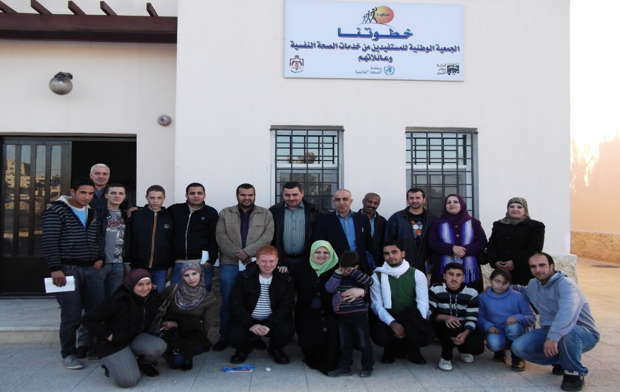
This country case study is part of a series developed in collaboration with the Mental Health Innovation Network with the aim of highlighting mental health innovations within the Eastern Mediterranean Region. This featured program from Jordan aims to increase the participation of service users and their families as key stakeholders in the mental health field, and to advocate for their rights and increase awareness of mental health.
Integrating MHPSS into Primary Health Care Centers in Lebanon
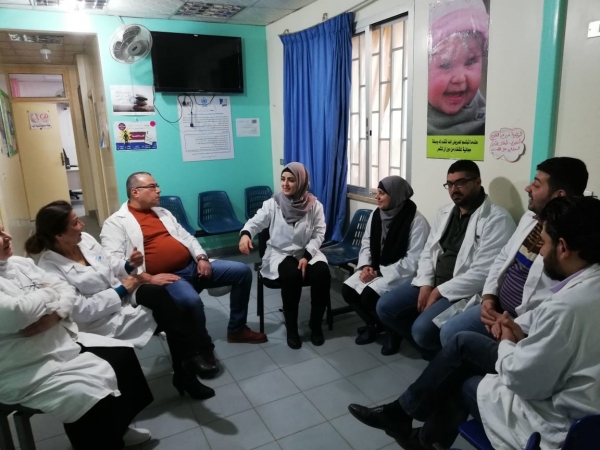
This country case study is part of a series developed in collaboration with the Mental Health Innovation Network with the aim of highlighting mental health innovations within the Eastern Mediterranean Region. This featured program from Lebanon aims to provide Mental Health and Psychosocial Support (MHPSS) services for Palestinian refugees in Lebanon by delivering collaborative stepped-care mental health services through a supportive network of specialists at 27 primary healthcare centers across Lebanon.
Mental Health System Reform in Jordan

This country case study is part of a series developed in collaboration with the Mental Health Innovation Network with the aim of highlighting mental health innovations within the Eastern Mediterranean Region. This featured program in Jordan aims to provide community-based mental health care to displaced Iraqis and Jordanians through mental health reform that is focusing on shifting attention from a humanitarian agenda to a development agenda.
Humanitarian Crisis and Mental Health Reform in Lebanon
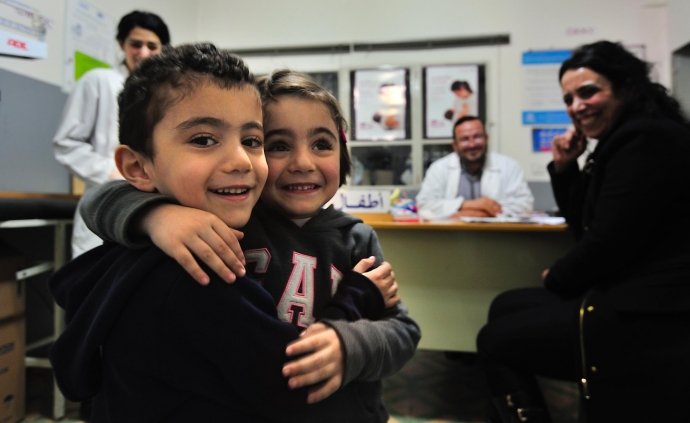
This country case study is part of a series developed in collaboration with the Mental Health Innovation Network with the aim of highlighting mental health innovations within the Eastern Mediterranean Region. This featured program in Lebanon aims to reform the mental health system and scale up evidence-based services through the establishment of a National Mental Health Programme that merges both humanitarian and development agendas.
Step-by-step: e-mental health in Lebanon
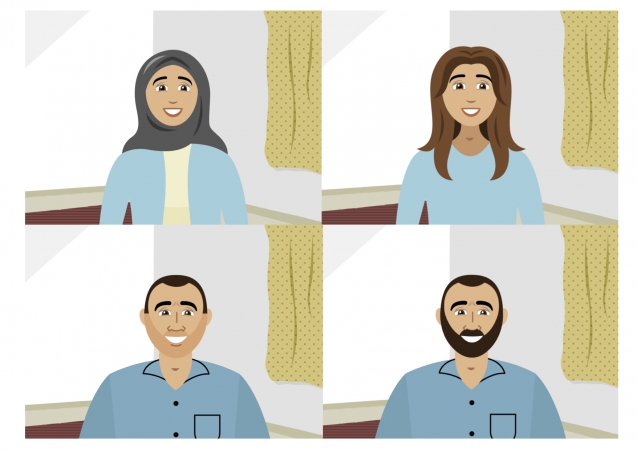
This country case study is part of a series developed in collaboration with the Mental Health Innovation Network with the aim of highlighting mental health innovations within the Eastern Mediterranean Region. This project in Lebanon aims to reduce the burden of depression among people who are faced with adversity, through developing and testing a WHO brief and scalable psychological intervention delivered through the internet.
Mental Health and Psychosocial Support (Phase II) in Palestine
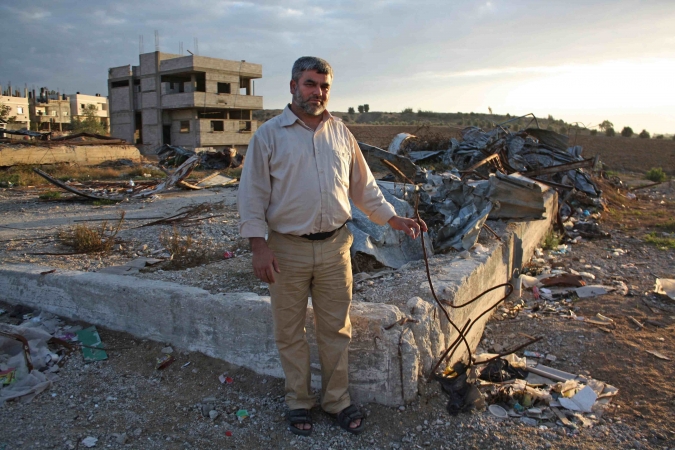
This country case study is part of a series developed in collaboration with the Mental Health Innovation Network with the aim of highlighting mental health innovations within the Eastern Mediterranean Region. This project in Palestine aims to improve access to mental health services through implementing a five-year plan including deinstitutionalization, decentralization of care, redistribution of resources and integration of mental health into general health care services.
WHO-QualityRights Initiative in Lebanon within the national mental health reform
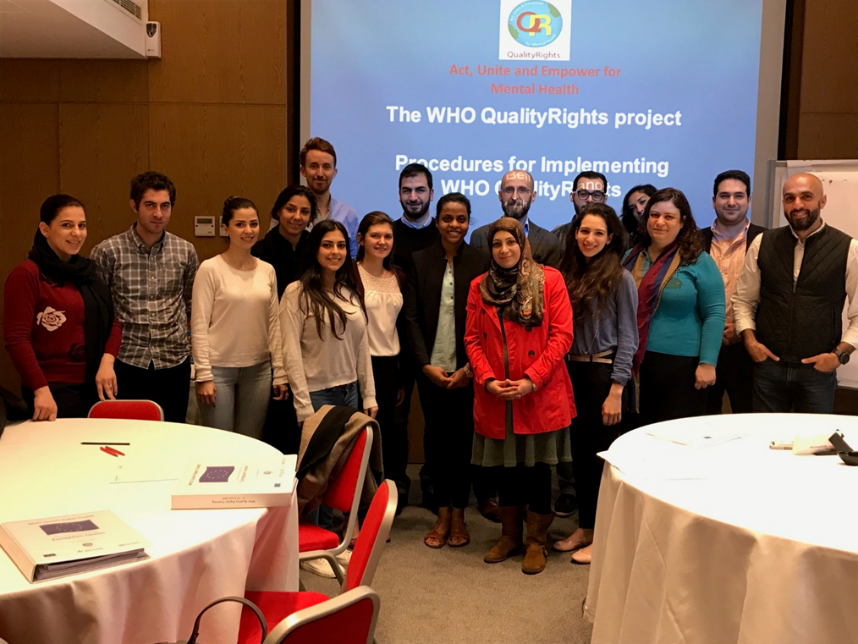
This country case study is part of a series developed in collaboration with the Mental Health Innovation Network with the aim of highlighting mental health innovations within the Eastern Mediterranean Region. This project aims to improve the quality and human rights aspects of mental health services in Lebanon, through conducting a pilot that assessed the quality and human rights aspects in two private facilities providing inpatient mental health services using WHO QualityRights Tool Kit.
Developing Qatar’s First Mental Health Attitudes and Awareness Measure

This country case study is part of a series developed in collaboration with the Mental Health Innovation Network with the aim of highlighting mental health innovations within the Eastern Mediterranean Region. This project aims to develop indicators to measure improvements in attitudes and awareness of mental health within the population The Attitudes and Awareness Survey will allow the Ministry of Public Health (MOPH) to measure change over time, as activities are undertaken to increase awareness and reduce stigma about mental health
Thinking healthy programme in Pakistan
This country case study highlights the Thinking Healthy Programme in Pakistan. This initiative aims to reduce perinatal depression and its negative impact on child development in resource-poor settings through task shifting. In summary, this is an evidence-based intervention for perinatal depression incorporating cognitive and behavioral techniques into community health workers’ routine work.
Pakistan marks World Mental Health Day with Presidential initiative
This country case study highlights the Presidential initiative launched by the Government of Pakistan to improve mental health at national level. The initiative aimed at improving the mental health of mothers and young people. Efforts to improve the mental health of mothers was guided by WHO’s Thinking Healthy Programme, which aims to reduce perinatal depression in low socioeconomic settings and to improve health outcomes in their children through the adaptation and integration of Cognitive Behavior Therapy into the routine work of community health workers. Efforts to improve the mental health of young people was guided by the School Mental Health Package, which was developed by the WHO Regional Office for the Eastern Mediterranean. The package aims to develop and enhance the skills of those involved in the educational process, to recognize the signs and symptoms, provide better support for young people, become stronger advocates for mental health, and effect legislation that protects the rights of people living with mental health disorders.
Related links
Global Mental Health Perspectives from the Eastern Mediterranean Region
Upgrading the care environment and safeguarding human rights through enhancing the efficiency of the National Center for Mental Health in Jordan
This case study highlights the technical and financial support provide by WHO Jordan to the National Center for Mental Health (NCMH) in Jordan from September 2021 to January 2022 to upgrade its facilities, reorganize the service delivery model and enhance staff capacities from to create a more therapeutic environment for patients while upholding human rights. These activities were carried out in line with the National Mental Health and Substance Use Action Plan 2022–2026, which WHO Jordan helped to update in 2022. The Action Plan advocates for community-based mental health services, delivered in an integrated way across the health system, to both improve quality of care¬ and protect human rights.
Reducing the stigma of mental health disorders in Tunisia with a focus on future doctors
This case study highlights stigma related to mental health disorders which exists in the health care system and among health care providers in Tunisia. For people living with mental health disorders, it is a major barrier to seeking help, accessing quality care and treatment, and recovery. It focuses on implementing innovative solutions for health care providers like the Responding to Experienced and Anticipated Discrimination (READ) anti-stigma training for medical students, to improve the ability of future doctors, specifically fifth-year medical students at Tunis Medical School to overcome the stigma of mental health disorders and improve quality of care and life for people living with mental health disorders.
President’s initiative to promote and improve mental health in schools in Pakistan
This country case study highlights the President’s initiative, launched by the Government of Pakistan, to promote and improve mental health in schools, with an emphasis on technology to improve access to mental health. This 5-year initiative focuses on training teachers in skills and strategies to promote mental health in their schools and recognize and manage mental health problems early on.
Providing mental health support in humanitarian emergencies: an opportunity to integrate care in a sustainable way
This country case study highlights the approach taken in Sudan, in collaboration with WHO and UNHCR, to strengthen national mental health systems through responses provided in humanitarian settings. The approach – which has led to increased capacity for mental health services within the broader health system – includes three core elements: the engagement of community leaders; the integration of support within the broader health system; and ensuring the quality of services provided through supportive supervision.
The National Integrated Parenting Skills Training Program
This country case study is part of a series developed in collaboration with the Mental Health Innovation Network with the aim of highlighting mental health innovations within the Eastern Mediterranean Region. This featured program from Iran is for parents. It is based on the Parent Management Training (PMT) principles, and aims to improve child-parent interaction as a prevention strategy for child abuse, maltreatment and neglect, through equipping parents with the skills and confidence they need to be self-sufficient and manage family issues independently.
School Health Implementation Network in the Eastern Mediterranean Region (SHINE)

This country case study is part of a series developed in collaboration with the Mental Health Innovation Network with the aim of highlighting mental health innovations within the Eastern Mediterranean Region. This project in Pakistan aims to evaluate the enhanced WHO’s School Mental Health Program aiming to reduce socio-emotional difficulties within school-going children through an online training platform and chat-bot for school teachers in rural Rawalpindi.
First 24/7 mental health helpline in Pakistan

This country case study is part of a series developed in collaboration with the Mental Health Innovation Network with the aim of highlighting mental health innovations within the Eastern Mediterranean Region. This project aims to address the gap in access to mental health care through providing 24/7 accessible mental health helpline, that operates free of cost for people with mental health conditions who wish to anonymously (or otherwise) seek help from qualified psychiatrists and psychologists.
Mental health system reform in Afghanistan

This country case study is part of a series developed in collaboration with the Mental Health Innovation Network with the aim of highlighting mental health innovations within the Eastern Mediterranean Region. This project aims to rebuild the Afghan healthcare system through integrating mental health into basic health services. It focuses on provision of non-pharmacological psychosocial interventions linked to community programs supported by secondary level psychiatric care.
Family Well-being Centers: Delivering Community-based Mental Health Support in Syria

This country case study is part of a series developed in collaboration with the Mental Health Innovation Network with the aim of highlighting mental health innovations within the Eastern Mediterranean Region. This featured program from Syria aims to integrate Mental Health and Psychosocial Support (MHPSS) services at the community level in order to enhance service access for populations at risk of severe mental distress and to reduce the linked dual-stigma of mental health conditions and gender-based violence.
Iran National Suicide Prevention Program

This country case study is part of a series developed in collaboration with the Mental Health Innovation Network with the aim of highlighting mental health innovations within the Eastern Mediterranean Region. This featured holistic and integrated program from Iran aims to reduce the rates of suicide attempts and suicide mortality within the general population through including evidence-based suicide prevention approaches within policy and practice.
Towards an Effective Integration of Mental Health in Primary Care in Kuwait

This country case study is part of a series developed in collaboration with the Mental Health Innovation Network with the aim of highlighting mental health innovations within the Eastern Mediterranean Region. This featured program from Kuwait aims to create a best practice model for integrating mental health services into primary care through an integration approach that ensures comprehensive, specialized and high-quality mental health care.
WHO mhGAP Implementation in Saudi Arabia: Integrating Mental Health in Primary Health Care

This country case study is part of a series developed in collaboration with the Mental Health Innovation Network with the aim of highlighting mental health innovations within the Eastern Mediterranean Region. This featured program from Saudi Arabia aims to provide effective primary mental health care services and training for primary health care workers to diagnose and deal with common mental health conditions.
Suicide Prevention in Tunisia

This country case study is part of a series developed in collaboration with the Mental Health Innovation Network with the aim of highlighting mental health innovations within the Eastern Mediterranean Region. This featured program from Tunisia aims to reduce the incidence of suicide and suicidal through the formulating a better understanding of the causality of suicidal behavior within Tunisia and defining a prevention strategy to integrate within the national strategy as a priority action.
Our Step Association

This country case study is part of a series developed in collaboration with the Mental Health Innovation Network with the aim of highlighting mental health innovations within the Eastern Mediterranean Region. This featured program from Jordan aims to increase the participation of service users and their families as key stakeholders in the mental health field, and to advocate for their rights and increase awareness of mental health.
Integrating MHPSS into Primary Health Care Centers in Lebanon

This country case study is part of a series developed in collaboration with the Mental Health Innovation Network with the aim of highlighting mental health innovations within the Eastern Mediterranean Region. This featured program from Lebanon aims to provide Mental Health and Psychosocial Support (MHPSS) services for Palestinian refugees in Lebanon by delivering collaborative stepped-care mental health services through a supportive network of specialists at 27 primary healthcare centers across Lebanon.
Mental Health System Reform in Jordan

This country case study is part of a series developed in collaboration with the Mental Health Innovation Network with the aim of highlighting mental health innovations within the Eastern Mediterranean Region. This featured program in Jordan aims to provide community-based mental health care to displaced Iraqis and Jordanians through mental health reform that is focusing on shifting attention from a humanitarian agenda to a development agenda.
Humanitarian Crisis and Mental Health Reform in Lebanon

This country case study is part of a series developed in collaboration with the Mental Health Innovation Network with the aim of highlighting mental health innovations within the Eastern Mediterranean Region. This featured program in Lebanon aims to reform the mental health system and scale up evidence-based services through the establishment of a National Mental Health Programme that merges both humanitarian and development agendas.
Step-by-step: e-mental health in Lebanon

This country case study is part of a series developed in collaboration with the Mental Health Innovation Network with the aim of highlighting mental health innovations within the Eastern Mediterranean Region. This project in Lebanon aims to reduce the burden of depression among people who are faced with adversity, through developing and testing a WHO brief and scalable psychological intervention delivered through the internet.
Mental Health and Psychosocial Support (Phase II) in Palestine

This country case study is part of a series developed in collaboration with the Mental Health Innovation Network with the aim of highlighting mental health innovations within the Eastern Mediterranean Region. This project in Palestine aims to improve access to mental health services through implementing a five-year plan including deinstitutionalization, decentralization of care, redistribution of resources and integration of mental health into general health care services.
WHO-QualityRights Initiative in Lebanon within the national mental health reform

This country case study is part of a series developed in collaboration with the Mental Health Innovation Network with the aim of highlighting mental health innovations within the Eastern Mediterranean Region. This project aims to improve the quality and human rights aspects of mental health services in Lebanon, through conducting a pilot that assessed the quality and human rights aspects in two private facilities providing inpatient mental health services using WHO QualityRights Tool Kit.
Developing Qatar’s First Mental Health Attitudes and Awareness Measure

This country case study is part of a series developed in collaboration with the Mental Health Innovation Network with the aim of highlighting mental health innovations within the Eastern Mediterranean Region. This project aims to develop indicators to measure improvements in attitudes and awareness of mental health within the population The Attitudes and Awareness Survey will allow the Ministry of Public Health (MOPH) to measure change over time, as activities are undertaken to increase awareness and reduce stigma about mental health
Thinking healthy programme in Pakistan
This country case study highlights the Thinking Healthy Programme in Pakistan. This initiative aims to reduce perinatal depression and its negative impact on child development in resource-poor settings through task shifting. In summary, this is an evidence-based intervention for perinatal depression incorporating cognitive and behavioral techniques into community health workers’ routine work.
Pakistan marks World Mental Health Day with Presidential initiative
This country case study highlights the Presidential initiative launched by the Government of Pakistan to improve mental health at national level. The initiative aimed at improving the mental health of mothers and young people. Efforts to improve the mental health of mothers was guided by WHO’s Thinking Healthy Programme, which aims to reduce perinatal depression in low socioeconomic settings and to improve health outcomes in their children through the adaptation and integration of Cognitive Behavior Therapy into the routine work of community health workers. Efforts to improve the mental health of young people was guided by the School Mental Health Package, which was developed by the WHO Regional Office for the Eastern Mediterranean. The package aims to develop and enhance the skills of those involved in the educational process, to recognize the signs and symptoms, provide better support for young people, become stronger advocates for mental health, and effect legislation that protects the rights of people living with mental health disorders.
Related links
Global Mental Health Perspectives from the Eastern Mediterranean Region








